Project - Creation & collaboration
A Project is somehow an AI Lab where data scientists can perform as many Experiment as they want in order to create the best ModelVersion possible.
1. Projects list
You can access the Projects features from the Navigation Bar:
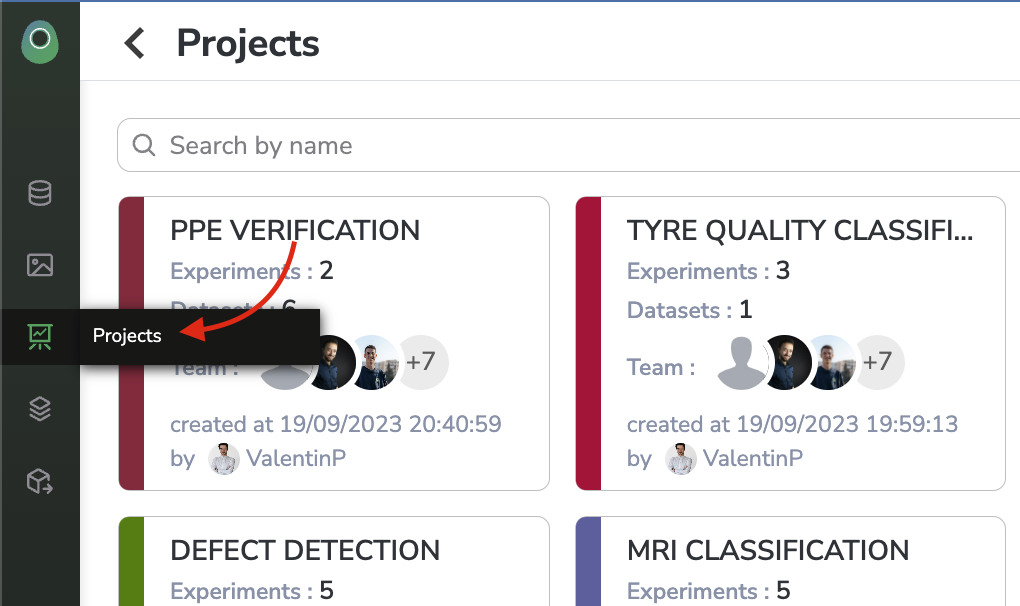
Access _Projects list
From this Project list, you can visualize the list of all the Project you can access in the frame of the current Organization. For each Project, you can visualize the number of Experiment, DatasetVersion, and contextual information.
This view also allows you to create a brand-new Project.
It is recommended to create a new Project in your Organization each time you work on a new use case. Basically, you should have one Project per ModelVersion, you are planning to train.
AProjectis not displayed ?You can only visualize only the
Projectyou are defined as Contributor in.
2. Create a new Project
ProjectFrom the Projects list, you can click on + New Project

Create a new Project
The Project creation form will then open. Through this form, you will be able to give for traceability purposes a name and a description of your new Project.
Then, you can select the members of your Organization that will be authorized to visualize and access this new Project. To do so, you just need to click on a member's name to add or remove him/her to the Contributors list.
Default ContributorsBy default, all members of your Organization are pre-selected as Contributors in the Project creation form.
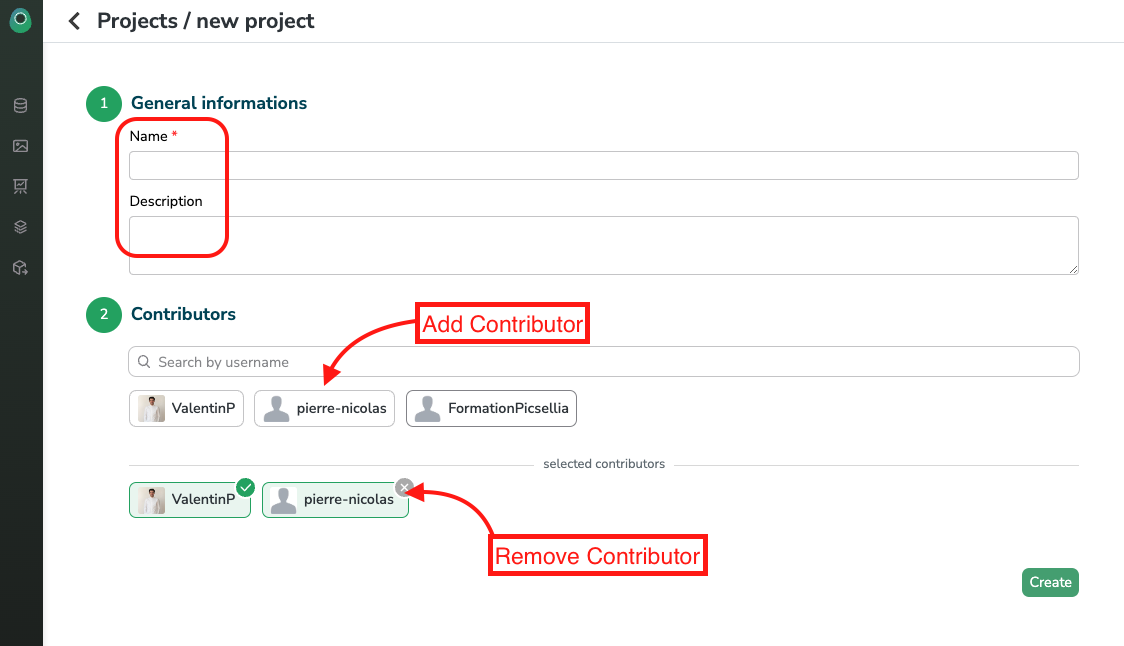
Project creation form
To finalize the Project creation, click on Create.
3. A collaborative lab
A Project is a space dedicated to the training of a ModelVersion for a dedicated purpose.
As we know the process of ModelVersion creation is a long process that needs several tries, experimentations, and adjustment, a Project allows you to perform all your ModelVersion training attempts in a structured and trackable space.
To do so, in a Project, you'll be able to store and gather all the DatasetVersion needed in the frame of the current Project and retrieve all the Experiment performed until now in a single view.
4. Project overview
Once created, a Project offers three different tabs:
- Overview
- Experiments
- Settings
A. Overview
a. Attach DatasetVersion
DatasetVersionThe Project overview is divided into two sections, the DatasetVersion panel and the Last Experiment list.

Overview of an empty Project
Obviously, after initialization, those two placeholders are empty.
So the very first step will be to attach to your Project, the DatasetsetVersion you plan to work within the frame of the ModelVersion creation. This can be done by clicking on the + button next to Attached datasets. A modal will open in which you'll be able to browse first among your Dataset and then among related DatasetVersion to select the ones to be attached to the Project.
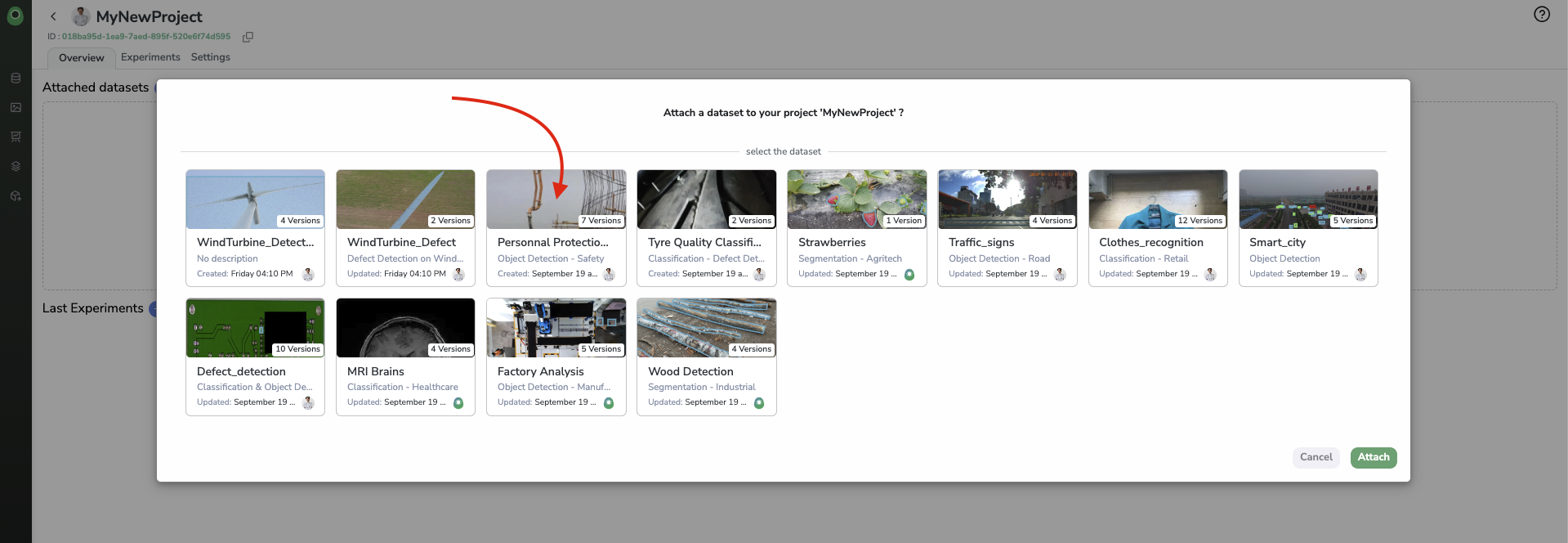
Select the Dataset
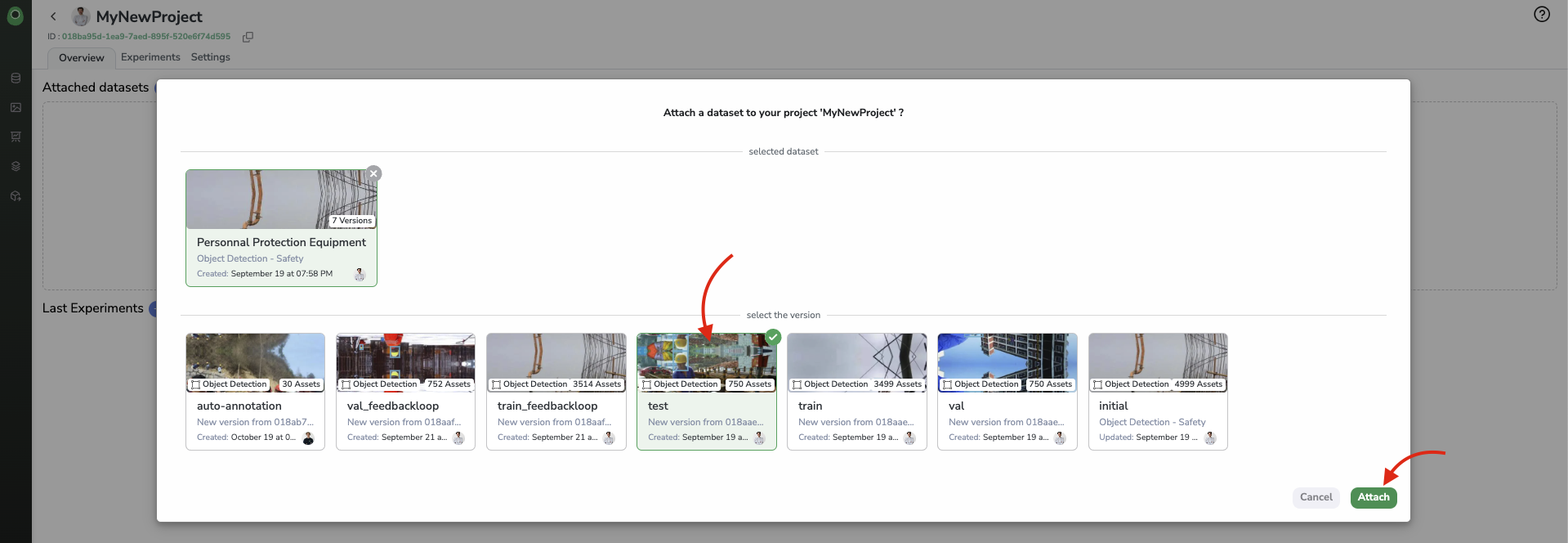
Select related DatasetVersion to be attached to the Project
Once attached, your Project is ready to get its first Experiment.
B. Last Experiments
The Last Experiments list is quite self-explanatory, it allows you to quickly visualize the main properties related to the last Experiment created in the frame of the Project and create a new Experiment as detailed here.

Last Experiments
Clicking on any Experiment name will lead you to the Experiment overview page.
5. Experiments
By accessing the Experiments tab you will access the exhaustive list of Experiment created in the frame of the current Project and visualize the main properties of those Experiment.
You also have the possibility to create a new Experiment by clicking on the + New Experiment button, more details about Experiment creation are available here.

Experiments list
In case, you have many Experiment in your Project, you can leverage the Search bar to search for particular Experiment. The Search bar embeds an auto-completion engine that allows you to search for Experiment on particular properties such as Name, Status, and Creation date ..
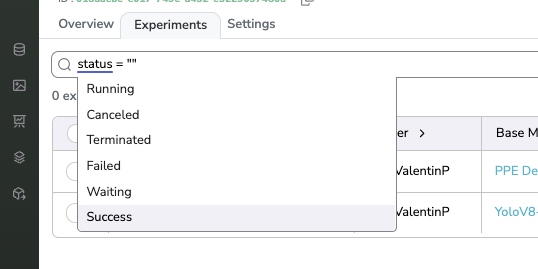
Search bar in Experiments list
6. Settings
The Settings page, basically allows authorized users to modify the name of the Project and delete it through the General tab and manage the Users that can access this Project though the Collaborators tab.

General tab of Project Settings
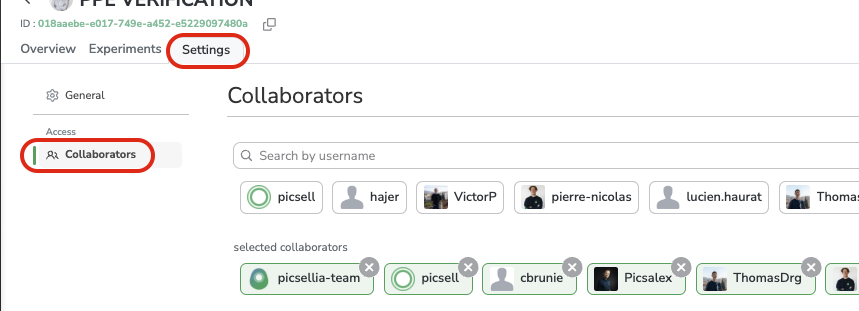
Collaborator tab of Project Settings
Updated 9 months ago